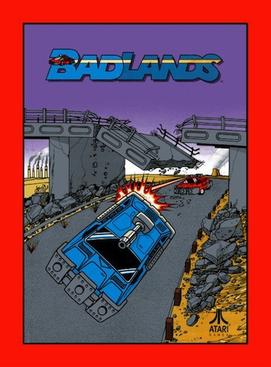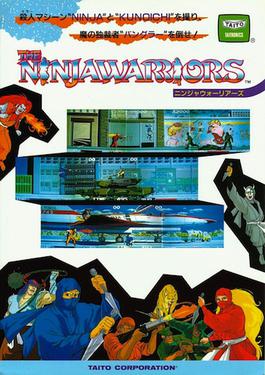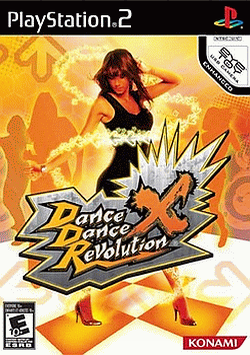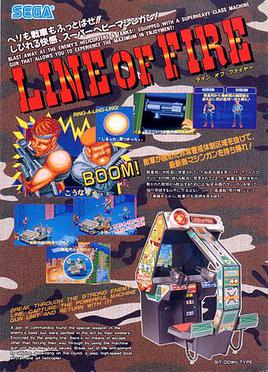Related Research Articles

Whac-A-Mole is an arcade game. It was created in 1975 by the amusements manufacturer TOGO in Japan, where it was originally known as Mogura Taiji or Mogura Tataki.

Galaga '88 is a 1987 fixed shooter arcade video game developed and published by Namco. Running on the Namco System 1 hardware, it is the third sequel to Galaxian, featuring significantly improved graphics over the previous games in the series, including detailed backgrounds, larger enemies and greater ship details.
Coinslot International is a UK trade magazine that caters for the 'pay-to-play' leisure sector, generally known as 'coin-op' before the widespread introduction of electronic means of payment. It is published weekly with a 'double' issue over the Christmas/New Year period.

Badlands is a 1989 arcade video game published by Atari Games. It was ported by Domark under the Tengen label to the Amiga, Amstrad CPC, Atari ST, Commodore 64, and ZX Spectrum. The game is a re-themed version of Atari's previous racing games Super Sprint and Championship Sprint with the addition of vehicular combat. Badlands is set in the aftermath of a nuclear war and races around abandoned wastelands with many hazards. Three gun-equipped cars race around a track to win prizes.

The Ninja Warriors (ニンジャウォーリアーズ) is a side-scrolling beat 'em up video game developed and released by Taito in 1987. The original arcade game situated one display in between projected images of two other displays, creating the appearance of a triple-wide screen. Ports were released for home systems including the Amiga, Atari ST, ZX Spectrum, Commodore 64, Amstrad CPC, PC Engine, and Sega Mega-CD.

Star Wars: Racer Arcade is a 2000 arcade racing game developed by AM5 and LucasArts and is the final Star Wars game released by Sega. It is based on the Podrace scenes in the 1999 film Star Wars: Episode I – The Phantom Menace.

Aliens is a 1990 run and gun video game developed and published for arcades by Konami. It is based on the 1986 film of the same title. Two players can play the game cooperatively in addition to single-player.

Dance Dance Revolution X is a music video game developed by Konami. A part of the Dance Dance Revolution series, it was announced in 2008 for Japan and on May 15, 2008, for the North American PlayStation 2. The arcade version was announced on July 7, 2008, July 9, 2008 in Europe, and July 10, 2008, for North America. Released to celebrate the 10th anniversary of Dance Dance Revolution, DDR X sports an improved interface, new music, and new modes of play. The arcade release featured an overhauled cabinet design with a widescreen display, e-Amusement and USB access, and an improved sound system. Despite such new design of its arcade cabinet, upgrade kit to change the edition of DDR on its first generation arcade cabinet from SuperNOVA2 to X is also available. The PlayStation 2 release has link ability with the arcade machine, multi-player support over LAN, and other improved and returning features such as EyeToy support. DDR X was called a "truly global version", with a multi-regional release by all three major Konami houses.

WEC Le Mans, known as WEC Le Mans 24 in Japan, is a racing simulation video game released in arcades by Konami in 1986. It was the first racing video game to depict the 24 Hours of Le Mans World Endurance Championship (WEC). The Lap of Le Mans is split up into three sections, during which the time of day changes from day to dusk, dusk to night, and night to dawn.
ATEI is a four-letter acronym and can refer to:

Tecmo World Cup '90 is an association football video game released by Tecmo as an arcade video game in 1989. It was a successor to Tecmo's Tehkan World Cup (1985) and is based on the 1990 FIFA World Cup.

Line of Fire is a first-person light gun shooter game developed by Sega and released for arcades in 1989. It was released with two arcade cabinet versions, a standard upright and a sit-down cockpit, both featuring two positional guns. The cockpit design allows the player(s) to sit down while playing the game, while having two-handed machine guns, controlled by a potentiometer-controlled gun alignment software system. The game follows a two-man commando unit as they try to escape from a terrorist facility after seizing a prototype weapon.

Rolling Thunder is a run and gun video game developed by Namco in Japan and Europe and released in 1986 as a coin-operated arcade video game using the Namco System 86 hardware. It was distributed in North America by Atari Games. The player takes control of a secret agent who must rescue his female partner from a terrorist organization. Rolling Thunder was a commercial success in arcades, and it was released for various home computer platforms in 1987 and the Nintendo Entertainment System in 1989. The original arcade game has been included in various classic game compilations as well. It influenced later arcade action franchises such as Shinobi and Time Crisis, which borrowed mechanics such as taking cover behind crates.
Amusement Expo is an annual convention featuring and showcasing vendors, developers and businesses having to do with coin activated amusements such as video arcade machines, electro-mechanical games, ticket/redemption skill and chance games, and jukeboxes. The show is held annually in March at the Las Vegas Convention Center.

H2Overdrive is a powerboat arcade racing game developed by Specular Interactive and released in 2009 by Raw Thrills. It is considered a spiritual successor to Hydro Thunder. The game was also released in the People's Republic of China by UNIS.
The Japan Amusement Expo (JAEPO) is an annual trade fair for amusement arcade products, such as arcade games, redemption games, amusement rides, vending machines, and change machines. The event is hosted one weekend per year in the Greater Tokyo Area. The event is held at the Makuhari Messe convention center in Chiba.
Play Meter was an American trade magazine focusing on the coin-op amusement arcade industry, including jukebox and arcade game machines. It was founded in December 1974 by publisher and editor Ralph C. Lally II and it is published in physical form by Skybird Publishing on a monthly basis. Together with rival publication RePlay it chronicled the arcade industry from its nascency, through market fluctuations like the video game crashes of 1977 and 1983, and the rebirth and maturation of the medium through the 1980s. It is the earliest example of video game journalism, establishing such practices as individual video game reviews and the ten-point assessment scale for video game reviews.

Teenage Mutant Ninja Turtles, released in Japan as TMNT: Super Kame Ninja and in Europe as Teenage Mutant Hero Turtles, is a 1989 beat 'em up arcade game released by Konami. It is based on the Teenage Mutant Ninja Turtles franchise, including the first animated series that began airing two years earlier. In the game, up to four players control the titular Ninja Turtles, fighting through various levels to defeat the turtles' enemies, including the Shredder, Krang and the Foot Clan. Released during a high point in popularity for the Teenage Mutant Ninja Turtles franchise, the arcade game was a worldwide hit, becoming the highest-grossing dedicated arcade game of 1990 in the United States and Konami's highest-grossing arcade game. Versions for various home systems soon followed, including the Nintendo Entertainment System. A sequel, Teenage Mutant Ninja Turtles: Turtles in Time, was released in 1991.

An arcade game or coin-op game is a coin-operated entertainment machine typically installed in public businesses such as restaurants, bars and amusement arcades. Most arcade games are presented as primarily games of skill and include arcade video games, pinball machines, electro-mechanical games, redemption games or merchandisers.
References
- ↑ "ATEI London Show" (PDF). Electronic Gaming Monthly . No. 92. Ziff Davis. March 1997. p. 94.
... Europe is starting to become a major player in the arcade market. Their major arcade show took place on Jan. 21 ...